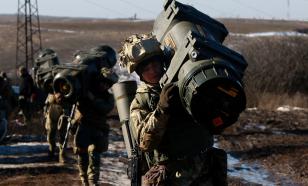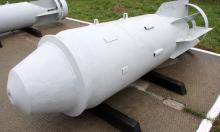Russian Army passes Bulava ICBM into service
The Bulava sea-based intercontinental ballistic missile was put into service. The works on the missile started in the late 1990s. Several test launches of the Bulava ballistic missile ended with a failure.
The Russian Armed Forces have adopted the sea-based intercontinental ballistic missile Bulava, Yuri Solomonov, the General Designer of the Moscow Institute of Thermal Engineering said, TASS reports.
"On May 7 of this year, a decree was signed to bring the Bulava missile system into service,” he said.
The Bulava is a Russian three-stage solid-fuel missile designed to arm Project 955 Borei nuclear-powered missile submarines, such as Knyaz Vladimir and Vladimir Monomakh. One submarine of this class carries 16 such missiles. The maximum range of the Bulava missile is 9,300 kilometres. It can carry up to ten individually targeted hypersonic manoeuvring nuclear units capable of changing the flight path in altitude and heading.
Russia has been developing the missile since 1998. A number of unsuccessful launches took place from 2006 to 2009. Some of those test launches ended with explosions. Another unsuccessful launch occurred in 2013. In 2010, the Commander-in-Chief of the Russian Navy, Admiral Vladimir Vysotsky, said that the reason for the unsuccessful test launches was a violation of production technology.
By the end of 2022, Russian specialists had conducted 40 test launches of the missile. All launches conducted after 2013 were successful.
In November 2023, the Bulava missile was launched from the Emperor Alexander III submarine. The missile hit targets at Kura training ground in Kamchatka.
The Bulava missile was designed by the Moscow Institute of Thermal Engineering.
Subscribe to Pravda.Ru Telegram channel, Facebook, RSS!




